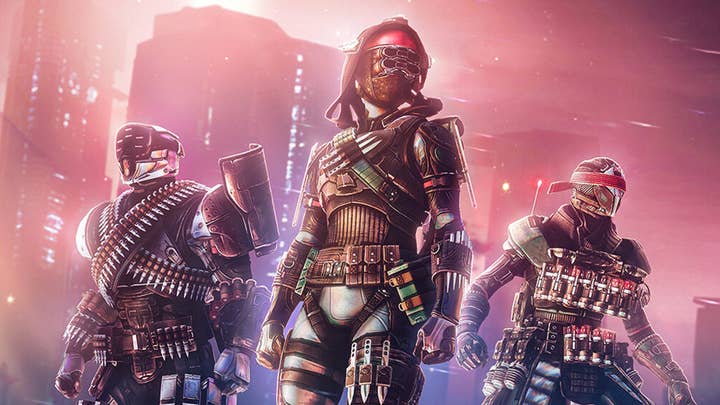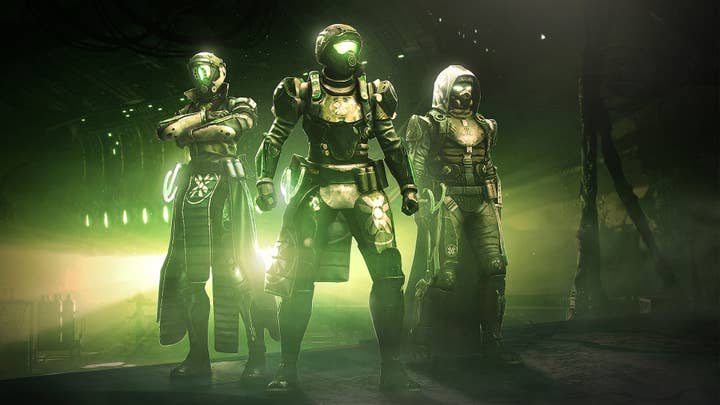Does Sony have a long-term software strategy? | Opinion
PlayStation's studio system is world-class today – but with reports of cost-cutting and cracks showing in the expensively-acquired Bungie, there are concerns about tomorrow
In all the furore over Microsoft's record-breaking acquisition of Activision Blizzard, it's almost been possible to forget that Sony recently had a major acquisition of its own – a far cry from the scale of the Activision deal, certainly, and not even a match for the price tag of Microsoft's earlier Zenimax acquisition, but Sony's $3.6 billion buyout of Bungie was a big step for the company nonetheless.
The acquisition strategy that has built up Sony's studio system had been a relatively cautious process of accretion for the most part. Studios like Insomniac, Naughty Dog, Sucker Punch, and Guerrilla Games were bought out after years of working increasingly closely with Sony, effectively functioning as Sony "second-party" developers for a while before being brought in-house as first-party studios.
The Bungie deal was a departure from that strategy. While PlayStation was a major platform for Destiny and Destiny 2, Bungie acts as a multi-platform publisher of its own games, a status that was promised to continue even after the expensive acquisition was completed.
At the time of the deal, back at the start of 2022, this looked like a fairly major evolution of Sony's software strategy – which had also recently begun to embrace non-PlayStation platforms, with well-received PC releases of major first-party titles. Bungie would bring that a step further, while also bringing live service expertise that would develop this side of the business for Sony as a whole.
Meanwhile, from Bungie's side of things, the focus was on independence and growth; the studio's autonomy would survive the acquisition, while the resulting injection of capital would enable it to grow and achieve its plans much more rapidly.
Nearly two years on, a round of layoffs at Bungie – accompanied by some delays to projects in the pipeline – have brought this deal back into focus, and raised some significant questions about what Sony's strategy actually is here.
Exact numbers haven't been disclosed, but about 100 of the company's roughly 1,200 staff have reportedly been laid off. The next major Destiny 2 expansion has been pushed back a few months to June 2024, while new title Marathon has been pushed to 2025. This all comes on the back of Destiny 2 missing its revenue targets by some 45%, a major dip which suggests that the venerable game (originally released in mid-2017) is sunsetting far more quickly than the company had hoped for.
It's also worth mentioning that layoffs have been happening at Sony-owned Media Molecule and Visual Arts earlier this month as well.
Largely uncommented-upon when Sony's Bungie purchase went through was what a risky investment this was. $3.6 billion is a fair chunk of cash for a company of Sony's size, and while Bungie is a studio with an extraordinary history – creating the Halo and Destiny franchises alone makes it remarkable – it does not own the most valuable IP it created (Halo), and its only game on the market right now, Destiny 2, has gone through some serious ups and downs in terms of commercial success and player sentiment.
Since the acquisition, it has announced one new title, an extraction shooter – a fairly masochistic sub-genre that has yet to yield a genuinely major commercial hit title – based on the Marathon IP. That was an odd choice; most of the potential audience for an extraction shooter weren't born when the last Marathon game came out, and most of the people who remember Marathon fondly despise the notion of the series being exhumed as a live-service online shooter, making one wonder what the point of attaching that IP to this project actually was.
Either way, the response to the one heavily stylised Marathon trailer we've seen was not all positive; a rocky start for the first new project from Sony's most expensive acquisition to date.
In this context, layoffs at Bungie are a concerning sign. We can't know for certain if this decision came from within Bungie – a supposedly highly autonomous business unit – or whether it was demanded by Sony, but reporting on these layoffs has tended to contextualise them alongside a broader cost-cutting effort in Sony's studios.
That cost-cutting itself is a hell of an interesting thing for the company to be doing, given that its studios are essentially the only reason why the much smaller and less wealthy Sony is considered capable of maintaining market leadership in the face of the now-gigantic Xbox division Microsoft has spent most of Sony's market cap assembling.
Whatever your view of the Activision Blizzard acquisition, it is now a done deal, and Sony needs a bold strategy to ensure that it remains competitive not this year or next, but five and ten years down the line. Sending in the MBAs to "find efficiencies" in the world-class studio system it has spent so much time and effort assembling sounds like pretty much the opposite of that.
It's no secret that the industry as a whole is in cost-cutting and layoffs mode this year. Nonetheless, the "everyone else was doing it" excuse will be cold comfort for Sony in a few years' time if penny-pinching leaves its studios unable to maintain their edge over the company's much larger, hungrier, and more aggressive rival.
If your largest rival had just spent over $70 billion buying one of the industry's biggest publishers with the explicit goal of destroying your market-leading position, pulling out all the stops to grow your studio network and build out an even more impressive software pipeline would seem, on the face of it, to be the only appropriate response.
If that's not Sony's strategy, it needs to start answering some pointed questions about what it's going to do instead – and what's going on at Bungie is going to be watched carefully as a bellwether for the company's thinking.

Back when Sony acquired Bungie, the continued independence of the company – which would be free to continue acting both as a developer and as a publisher, releasing its games on non-Sony platforms, and thus playing a role in expanding Sony's software reach beyond PlayStation – was a very big part of the narrative.
It's not clear whether we should therefore treat Bungie's layoffs as the result of a broader cost-cutting directive at Sony, or whether the 45% revenue miss for Destiny 2 is the internal justification that matters. Yet even if it's the latter, there's a contradiction. The $3.6 billion Sony spent buying Bungie was meant to fuel growth for both companies; instead, Bungie is laying off staff (in some cases, it's reported, before some of their shares from the acquisition have even vested).
If the "growing and building" that Jim Ryan and Pete Parsons talked about so enthusiastically back in early 2022 isn't actually happening, that $3.6 billion starts to look awfully mis-spent, and this studio's role in Sony's fairly unclear strategy becomes even more questionable.
With cracks starting to show in its biggest acquisition to date, while its biggest competition has spent the best part of $100 billion catching up with it, treading water is not a long-term option
Perhaps there are some cold feet within Sony over the Bungie deal – executive toes being chilled by the sharp decline in Destiny 2 revenues, and the arguably quite negative response to the Marathon trailer – that are raising questions over whether this expensively acquired live service game specialist is really a good component for PlayStation's future direction.
That's a fair question, not least since there's some evidence of live service fatigue setting in for players, and definitely a slowing of the growth of this kind of business model. Yet if that's the case, an alternative future direction has failed to emerge or to be articulated.
Back when the Bungie deal closed, Jim Ryan said that Sony had "many more moves to make" when asked about future acquisitions to head off industry consolidation. Nearly two years later, we haven't seen it break out any of those moves; instead we see Bungie trimming headcount amid reports of broader cost-cutting in Sony's studio network.
So far, to be fair, Sony hasn't had to show us any new moves – it continues to have a fantastic software pipeline, at least in the short to medium term. But with the cracks starting to show in its biggest acquisition to date, while its biggest competition has spent the best part of $100 billion catching up with it, treading water is not a long-term option.
The PlayStation brand remains strong – but the plans to fill software pipelines are laid years in advance, and that means that the seeds of possible crises are also planted years in advance.
The risk to PlayStation isn't on a two to three-year horizon, but beyond that. If the company doesn't have a clear strategy for how it will build and grow, not trim and cost-cut, with a view to being a serious competitor in the decade to come, then even its commanding market lead today may not be enough to carry it through tomorrow.
Sign up for the GI Daily here to get the biggest news straight to your inbox

